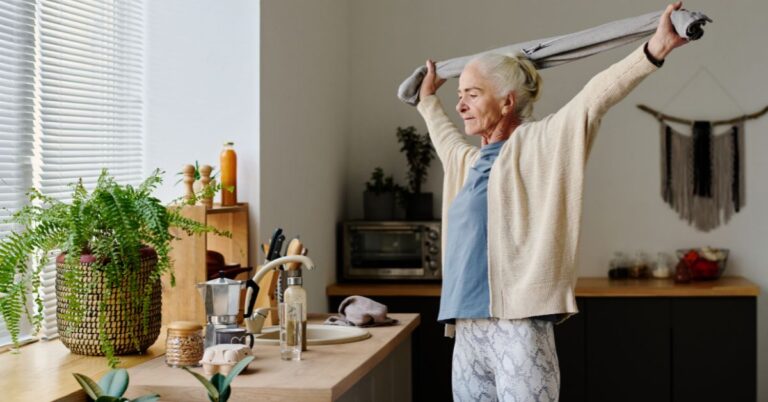
Senior Anxiety: Recognize & Manage It
Anxiety touches lives regardless of age, yet its presence in seniors considering assisted living in Farmington Hills, MI often escapes notice. The reality is sobering—anxiety affects roughly 10-20% of older adults, with most cases remaining undiagnosed. This quiet struggle deeply impacts your loved one’s daily joy and physical well-being. Women face twice the risk of developing anxiety disorders compared to men, especially after experiencing loss or grief. Recognizing these signs gives you the power to help your loved one find proper care and much-needed relief.
What Causes Anxiety in Seniors?
Life transitions and loss
The gradual loss of independence cuts especially deep. When health issues or mobility limitations make everyday tasks difficult, many seniors feel their control slipping away. Several other common triggers deserve attention:
- Grief and complicated bereavement
- Ending careers and losing a sense of purpose
- Money worries despite careful retirement planning
- Loneliness affects roughly 25% of seniors
Chronic health conditions
Your body and mind connect deeply, especially as you age. Research confirms that chronic diseases directly affect the psychological well-being in older adults. This relationship partly depends on how these conditions limit daily activities. For seniors considering assisted living, chronic pain often becomes an unwelcome companion. Sadly, about 65% of people with depression also report experiencing at least one pain symptom. Certain health problems—circulatory, musculoskeletal, metabolic and respiratory conditions—also link to higher depression rates.
Family history and past trauma
Some anxiety roots reach back decades—or even generations. Family history can make you more vulnerable to anxiety disorders, as these conditions affect brain areas that control fear and emotional responses. Childhood traumas continue affecting seniors well into their later years. Studies show early-life hardships profoundly shape physical health, making older adults more vulnerable to chronic illness while weakening immune function. These early, difficult experiences significantly raise the risk of developing anxiety disorders in later life.
How Do You Treat Severe Anxiety in Seniors?
Treating anxiety in older adults demands a tailored approach. Seniors often show increased sensitivity to medications, while their multiple health conditions create layers of complexity. Truly effective anxiety management combines professional guidance with practical self-care strategies that respect these unique needs.

Cognitive behavioral therapy (CBT)
CBT emerges as remarkably effective for seniors struggling with anxiety. The research speaks clearly—this therapy works as well as or better than other approaches for late-life depression. What makes CBT special is its structured, goal-focused method that helps seniors identify and reshape the negative thought patterns feeding their anxiety.
For older adults specifically, CBT delivers meaningful results:
- Reduces the intensity of worry and depressive symptoms
- Boosts overall mental health and daily functioning
- Creates lasting changes—one study found 58% of seniors remained free from their original diagnosis even a decade after treatment
Even mild memory problems don’t prevent seniors from benefiting from CBT, though therapists may adapt their techniques to work around these challenges.
Medication options and safety
When considering medications, antidepressants typically serve as first-choice treatments for anxious seniors:
- SSRIs and SNRIs (like escitalopram and sertraline) offer effective relief with fewer side effects
- Mirtazapine and vortioxetine provide gentler alternatives with favorable side-effect profiles
- Buspirone may help some seniors, though research specifically with older populations remains limited
Approach benzodiazepines with caution. While these medications provide quick relief, they significantly increase fall risks and may cloud thinking in older adults. When needed, they work best as short-term solutions only.
Lifestyle changes that help
Daily habits carry powerful anxiety-fighting potential for seniors:
Regular physical movement releases natural mood-lifting chemicals, while thoughtful food choices support emotional stability. Consistent sleep patterns, simple breathing exercises and meaningful activities all work together to calm an anxious mind and body.
Finding Peace: The Path Forward
Many families discover that finding proper support becomes essential. Professional care settings address anxiety at its source while providing much-needed structure and community. Your choice of partner in this journey truly matters. You need peace of mind that comes from knowing your loved one receives care that truly fits their unique situation, both body and mind.
Remember this truth: anxiety isn’t simply part of getting older. Though common, it responds well to treatment at any age. The first meaningful step often means just reaching out. Call us at (248) 477-7400 to schedule a tour of The Commons at Farmington Hills and see how dedicated support can help replace anxiety with newfound confidence.
Your loved one should enjoy their golden years with genuine joy, not fear. With proper awareness, understanding and targeted care, anxiety need not define their experience of senior living.
FAQs
Q1. What are the common signs of anxiety in older adults?
Common signs of anxiety in seniors include physical symptoms like a racing heart, muscle tension and gastrointestinal issues, as well as emotional and behavioral changes such as excessive worry, social withdrawal and sleep disturbances. These symptoms can often be mistaken for other health conditions, making diagnosis challenging.
Q2. How can I help a senior loved one with anxiety?
To help a senior with anxiety, remain calm and reassuring, acknowledge their fears without reinforcing them, encourage social activities and offer support in seeking professional help. Additionally, consider lifestyle changes like regular exercise, proper nutrition and stress reduction techniques to help manage anxiety symptoms.
Q3. Can medications cause anxiety in older adults?
Yes, certain medications prescribed to seniors can cause or worsen anxiety. These include corticosteroids, thyroid medications (when the dosage is too high), stimulants containing caffeine and some decongestants and antihistamines. Please discuss all medications with a healthcare professional to pinpoint any potential causes of anxiety.





